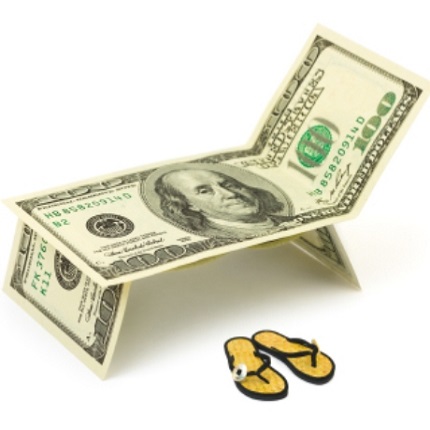How To Negotiate Your Medical Bills
 The United States has the world’s most expensive health care system, with expenditures reaching $8,713 per capita in 2013, according to the Peter G. Peterson Foundation, a nonpartisan organization.
The United States has the world’s most expensive health care system, with expenditures reaching $8,713 per capita in 2013, according to the Peter G. Peterson Foundation, a nonpartisan organization.
Once you receive a medical bill, even one that’s larger than expected, your only option is to pay it or risk collection actions against you, right?
Not necessarily.
In fact, medical bills are often negotiable and in some cases, you might be overcharged due to errors.
“Don’t passively pay a bill assuming that it’s correct,” says Rebecca Palm, co-founder and chief strategy officer for Copatient, a company that provides medical bill reviews and negotiates with hospitals and insurers on consumers’ behalf. “Consumers have the right to fully investigate and resolve any bill that they have a question about. The worst thing that can happen is to ignore it and have it go to collections,” Palm says.
Medical bill negotiators at Copatient and other firms work on clients’ behalf to resolve billing issues or negotiate lower medical bills, often in exchange for a portion of the savings. In some situations, if you have the time and the patience to negotiate yourself, a DIY approach may help you reduce your medical bill without giving up savings.
To help you avoid paying unnecessary medical expenses, we enlisted three professional medical bill negotiators to share their strategies for cutting costs.
Know Your Insurance Coverage
If you have health insurance and you’re facing high out-of-pocket costs, find out why. Did your insurer deny a claim because the doctor’s office recorded a procedure incorrectly? Was there confusion about in-network versus out-of-network providers?
“If they have denied claims unfairly, appeal them,” says Sarah O’Leary, CEO and founder of Exhale Healthcare Advocates Inc. “Most of the time you can get the rulings overturned after one appeal.”
This single step could save you money without having to negotiate directly with your provider. However, if you haven’t met your health plan’s deductible yet, then you may need to try other strategies.
Request An Itemized Statement
Many times you’ll get a summary bill after a hospital stay or emergency room visit, but you won’t know what exactly you’re paying for. That’s why you should request a detailed, itemized statement of charges, which you’ll need regardless of whether you negotiate on your own or hire a professional.
“They’ll see that they’re being charged for gloves and gowns and teddy bears and medication they never received,” says Pat Palmer, founder and CEO of Medical Billing Advocates of America and Medical Recovery Services.
Get Clarification
Not sure what a cough support device is? Call the nursing station, rather than the billing department, and ask for clarity.
“Some of them they come up with very clever names to make it feel very important to your care,” Palmer says. For instance, that cough support device could be a teddy bear the staff give you to squeeze while you’re recovering from surgery or dealing with a cough, Palmer explains.
Question The Extras
If a provider nickel and dimes you over extras that are typically included during a hospital visit such as gloves or a hospital gown, question it.
“If it’s something you think is a routine supply or piece normally used when you’re in this unit, then you need to question whether that is billable,” Palmer says. “Most of the time those things are not billable separately,” she adds. For instance, ventilators are standard pieces of equipment in an intensive care unit. “That’s why you’re paying more for an ICU,” Palmer says. “You don’t pay for that separately,” she adds.
Ask For A Prompt Payment Discount
If you have the cash to pay your bill upfront and you don’t believe your bill contains errors or unbillable extras, ask the provider for a prompt pay discount. They may not publicize this option, but many providers will discount 10 to 20 percent for prompt pay, according to Palm.
“There’s a wide range of behaviors based on the provider you’re talking to and what type of bill you have,” O’Leary says. “Many providers are less willing to negotiate if the amount you owe is due to your deductible versus a different type of issue. And they’re definitely less willing to negotiate once a bill goes to collections. Still, it never hurts to ask.”
Log Your Communications
Lowering your medical bills may take persistence, so keep at it.
“Don’t take the first no as the answer,” O’Leary says. “Appeal to supervisors if the front lines in the billing department are playing hard ball,” O’Leary adds.
It also helps if you have a record of whom you spoke to, about what and when. Make sure to keep a log of phone calls or put your concerns in writing, which requires a written response from the provider. This creates a paper trail and also shows the provider you’re serious about filing your concerns.
When It Makes Sense to Call a Professional
If you hit a wall, want to check if your bills could be reduced further or your insurer denies an appeal for a claim you believe should be covered, you should contact a professional. Or, if you’re undergoing expensive ongoing treatment and feel overwhelmed by the process, that’s another scenario where it’s a smart idea to seek professional help.
More than half of the consumers who get a free savings report from Copatient wind up having the company negotiate for them, Palm says, pointing out that Copatient‘s average savings for clients is 40 percent.
“A lot of those people may have tried to resolve it on their own, but it’s an uphill battle for the average layperson,” Palm says. “They’ve made one or two attempts and decided to call in some expert help.”
Source: US News & World Report

